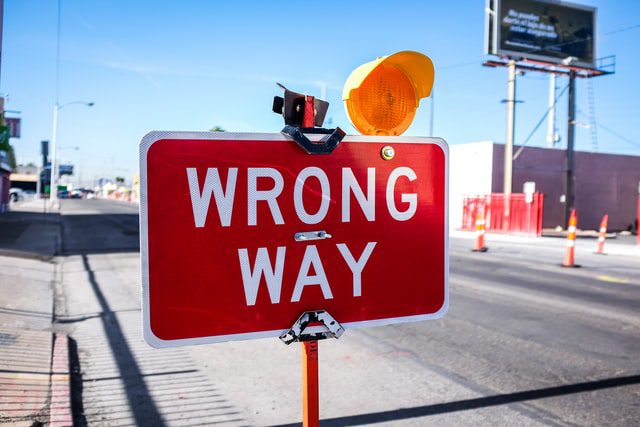
Apparently, I am a prude. But not just prudish, I am allegedly racist as well. I discovered all of this because I dared to offer criticism on the content of the middle of the break concert performance at a football game. I dared to question the intent of the chosen choreography and costume selections. I seem to always get into trouble when I ask questions.
Am I outraged? No, not really. I am barely angry. I am confused. I am confused and I am concerned about the overall context of the show.
I write and speak about the importance of erotic embodiment, and not just in private. I think modern theology as a whole has grossly excluded the importance of eroticism. I hold the female form of every shape in high regard. I am in awe of how aging women of my generation don’t look like the Golden Girls. I celebrate femininity and I have nothing but praise for women who embody their sexuality with confidence.
However, I also listen to others and I hear their concerns. I have young children. And while I believe it is important to teach children about sexuality and to reinforce a positive sexual ethic, I also believe that I am the one who gets to make the decision as to how, when, and where I teach my children of such things. So, I am allowed to censor the content they view. But what happens when we are exempted from the choice of how, when, and where? I think that is the focal concern of those who are voicing their complaints of the Half Time show. And if we aren’t willing to have a discussion about it, we are left with new ways to disconnect from others based on disagreements and only perpetuate the division pervading our society.
I am rather grateful that this event took place, not so much because it created uncomfortable environments for millions of people, but because we have a chance to learn from this and prepare ourselves for the next overtly sexualized interruption that we may be involuntarily subjected to.
I watch porn. I am no stranger to sexualized performances. But I don’t let my children watch porn.
Am I calling the performance from Sunday night porn? No. I also watch Marvel shows on Netflix, and while Netflix does offer ratings on its shows, I still didn’t expect all the sex scenes in a show about comic book heroes. In my mind, I had an expectation that the shows would be family-friendly (aside from maybe some violence) similar to the Marvel movies that we have all come to enjoy. With that in mind, I did think it would be OK for my kids to watch Luke Cage with me. Turns out, I was wrong.
I know I am not the only one who sees the ways in which hypersexualization is pervading every aspect of our lives. It’s in our movies, shows, music; most advertising utilizes sexual innuendo if not full-blown pornographic images to sell cars, watches, makeup, tacos, and soda.
The difference between the porn that I chose to watch and the Marvel shows I’ve selected to watch is that with porn, I know what I am getting.
As far as censorship wording goes, “slightly suggestive” sexual scenes can cater to a wide range of images. A scene that “leads-up” to sex but cuts away is “suggestive.” And in my home, if the scene gets too heavy or revealing, I can press pause and ask the kids to leave or I can stop watching the show altogether until the kids are in bed. I have control of the content that my children are watching.
During a televised sporting event, one of the biggest in the country, live—not everyone has that privilege. And, aren’t we a society concerned about privilege as it is? Without the luxury of choice, many people were conflicted about what they were watching. If I have learned anything on my journey it’s that conflict can lead to a connection that brings us to understanding. So, let’s address the conflict like reasonable adults so that we may understand why some have differing views on this topic than others do.
In the wake of #MeToo, as many have opined, the performance created confusion and contradictions for many people. Sure, you can pop off about how you think people are outraged over nothing, you can turn it into a race blaming scenario, you can call all the Christian Conservatives all the nasty names you want for their lack of embracing “how the times have changed.” You can even accuse all white women of being offended. But you’d be seriously misinformed and altogether ignorant if you thought it was that easy to superficially reduce.
Does consent matter? Does context matter? Do boundaries matter? These are the first three questions we should address. For me, my confliction has absolutely nothing to do with the skin tone of the performers, nor their ethnic culture. It has nothing to do with dancing at all. We don’t need to compare the cheerleaders to the performers. Nor do we need to rate either of the performers based on their bootylisciousness. I really don’t even want to address the absurdity of women creating polls to determine whether Jennifer Lopez or Shakira has the best butt. That alone still baffles me. Women asking women to rate and compare other women. #MeWho?
Let’s start with consent. We have been inundated with the messaging that consent matters. Consent is the difference between rape and voluntary sex. And not just consent to penetrate or perform once, but over and over. Are you continuing to consent once the act has begun? Are you checking with your partner to ensure it’s still ok to proceed with the penetration and stimulation? If you switch positions, consent is required for the change. I mean, we’ve gotten to the point that some colleges require consent contracts just to have sex with another person.
Consent, however, goes further than that. Not only does one have to consent to engage in acts of private, sexual interactions, but we have been told that consent of what we are observing and listening to matters. If every person who attended the game on Sunday consented to what they were viewing, fine. No reason to be concerned. If everyone at home watching didn’t consent, then they could just as easily turn off the show. I get that. But something tells me that, despite the cliché reactionary commentary that suggests that this particular football game “hasn’t been family-friendly for a long time,” a lot of people had the expectation that it was otherwise appropriate for their children.
My formal question is this: Did the NFL ask for consent from all the attendees of the event? Was there a parental advisory? Do we get trigger warnings anymore?
Do we care at all about context? Whether you view it implicitly or explicitly, the context of the performance was, from my view, sexually suggestive. Sure, kids saw the poles on the stage and could have thought “Hey! I have seen a pole like that at a playground!” But I know I am not the only adult familiar with Lopez’s recent movie who understood what she was working into her performance.
Pole-dancing is a phenomenal way to exercise. And I even understand why one wears minimal clothing when performing on one. But I also had it in my mind that even when utilizing pole-dancing as an exercise, it’s not done for an audience nor with children, nor with men wrapped around our coochies.
The atmosphere is already super-charged. Testosterone is in the air. Thousands of men (and some women and children, but mostly men) are aggressively drinking and cheering for their teams. Enter JLo and Shakira. What kind of energy did that add to the already thick atmosphere?
“But Danielle!”— they say, “you literally write about sex, what is going on?” Context is what is going on. I don’t like the forced change of context in a charged environment at a location that is known for its lures of sex trafficking. And before anybody starts making false equivalencies, I am not suggesting that the performance has anything to do with the statistically backed data that demonstrates that sporting events such as this are targets for sex trafficking. More so, I believe we need to be more conscientious about what types of imagery can influence an already volatile environment.
I am confused by the context because for decades, I have been told that men are predators, that men only want a certain thing, that men are dangerous, that drunk men are more dangerous, men cannot control themselves, men need to be educated, etc. We’ve also seen splashed across headlines discussions about why “locker-room talk” is toxic and dangerous. So, the general concern is that if all of this is true, why would anyone want to fuel that fire by depicting the very images of discussions held in locker rooms?
How can anyone in society stay on track with what is and is not acceptable with all these confusing images inundating our screens without consent and out of context? What does crotchless lingerie have to do with football? What message is mixed in with this American tradition of teamwork? Can’t we talk about this without accusing one another of being prude, racist, or antiwoman?
Don’t we need to establish some boundaries? More than that, can we at least establish a bit of continuity? If women continue to demand to be seen as a subject and not an object, can we take a bit of accountability for the context of the clothing? I have seen many dances performed with more clothing that still produced a sensual tone while remaining tasteful. More than that, I am familiar with the scared traditions of what’s known as a “striptease.” All can be done without explicit hypersexualized suggestion.
Women should be just as free to liberate their bodies as men are. And if you are going to pounce on me with the Adam Levine performance of last year, don’t. I wasn’t hollering for him to take more off, I was asking why he took his shirt off, to begin with. There are so many double standards when it comes to bare chests of men versus women, but that conversation is best reserved for another blog.
The liberation of the female body still requires boundaries and context. Point all you want to other nations and tribes that perform ritualistic dancing with nothing at all on. Ain’t nothing wrong with that. The conflict arises (as with most of our conflicts) when you clash cultures together without discussion. I think some would even find that when you imitate what other cultures are doing without explanation and understanding as to why other cultures do what they do, it’s called appropriation.
There is an ever-present and growing fear that in some pockets of our society, a normalizing of sexual grooming is occurring. Biden has been accused of toeing that line, as well as other celebrities who allow their children to dress as provocatively as their famous parents. Also, did we all just forget about Epstein, the Lolita Express, and the children that were passed around to politicians, elitists, and celebrities? Many in the Christian community see a trend with Disney stars that is hard to ignore. Whether you think this fear is valid or not is of no consequence. Fear is fear and when fear presents itself, if it is not addressed rationally, it grows.
In order to dissuade this mentality, a conversation needs to take place. A conversation about safe and healthy boundaries that still give parents a choice in how and when and where they tackle the necessary dialogues to be had with their children.
We must draw a line when it comes to sexual expression. I am not saying that all sexually implicit/explicit content needs to be locked in a porn box. But would a little parental advisory really be too much to ask for? I thought we were moving toward an understanding of having “trigger” warnings or preparing people for potentially sensitive scenes and discussions? Are we no longer offering that?
We could also consider that within the music industry alone, women have always been coerced (if not forced or met with ultimatums) to reveal more and twerk more and sex-up every performance. The #MeToo movement revealed a lot of industry secrets that target women and use women as mere sexual objects so that men can capitalize on the exploitation of women. So, if the performance from Sunday night was meant to curtail that normalcy, I am really confused as to how.
I believe we are a society that must advance its views on eroticism. Hell, my entire purpose behind my book is directed at such advancement! But the evolution, however, cannot be forced, nor even seduced. We must allow space for people to ask questions, to share their fears, and provide people with feedback that doesn’t diminish their beliefs. If we are to advance this society as a collective unit, if we are to see ourselves as One, that means that we consider the concerns of our neighbors. It means we will seek out ways to have meaningful discussions about this topic and all topics without believing we are talking to an evil, antiwoman, anti-female empowerment enemy.
Our children are watching. What do we want our children to know, how do we want our children to learn, and where do we want them to get this information from?
















